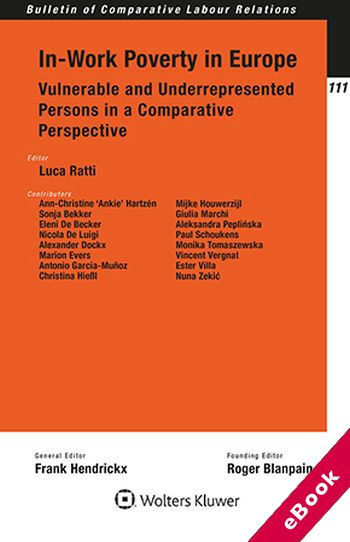
The device(s) you use to access the eBook content must be authorized with an Adobe ID before you download the product otherwise it will fail to register correctly.
For further information see https://www.wildy.com/ebook-formats
Once the order is confirmed an automated e-mail will be sent to you to allow you to download the eBook.
All eBooks are supplied firm sale and cannot be returned. If you believe there is a fault with your eBook then contact us on ebooks@wildy.com and we will help in resolving the issue. This does not affect your statutory rights.
In-Work Poverty in Europe is an important book that thoroughly analyses the direct and indirect measures combating in-work poverty. In-work poverty is a reality for too many persons in the European Union (EU). In-work poverty is largely perceived as part of the overall goal to reduce. There is rarely a specific focus on the plight of those who, despite working, are poor. This book contributes to a better knowledge and understanding of in-work poverty, thus equipping policymakers at the EU and national levels fully attend to the strengths and shortcomings of indicators and allowing the assessment of comparative best practices among the Member States.
What’s in this book:
As a comprehensive description and discussion of legal scholarship and relevant EU instruments in the EU Member States (Belgium, Germany, Italy, Luxembourg, the Netherlands, Poland, and Sweden), distinguished contributors describe and analyse this complex and multidimensional phenomenon, with its manifold and intertwined causes, in relation to such factors as the following:
The book approaches the ‘working poor’ by distinctly defining four groups of vulnerable and under-represented persons with detailed statistical information on in-work poverty in each group.
How this will help you:
This important book is the first to unreservedly meet the challenge of defining, measuring, and comparing the legal regimes to combat in-work poverty in Europe. The book’s comparative perspective assists in understanding in-work poverty determinants, appraising national active labour market policies, and stimulating the development of effective legal measures. The book sheds light on the role of regulation in the prevalence and persistence of the phenomenon and equips policymakers at the EU and national levels with targeted tools to tackle in-work poverty more effectively.